Master Blackjack Splitting: Expert Guide to Pair Strategy
KingCasinoBonus receives money from casino operators every time someone clicks on our links, influencing product placement. The compensation we receive does not impact our recommendation, advice, reviews and analysis in any way. Our content will always remain objective, independent, straightforward, and free from bias.

Splitting pairs in blackjack can either boost your winnings or drain your balance fast if you get it wrong. We tested split strategies on 40+ UK casino sites, putting over £4,000 on the line, and one thing stood out: most players either split way too often or miss the best chances.
Since you’ll face a split decision in about 1 out of 4 hands, it’s a skill worth mastering. From pocket aces to those tricky sevens, knowing when to split can turn a risky move into a smart advantage.
Want to step up and dominate your next gambling sessions at the best British blackjack casinos?
On this page
How Does Blackjack Splitting Work?
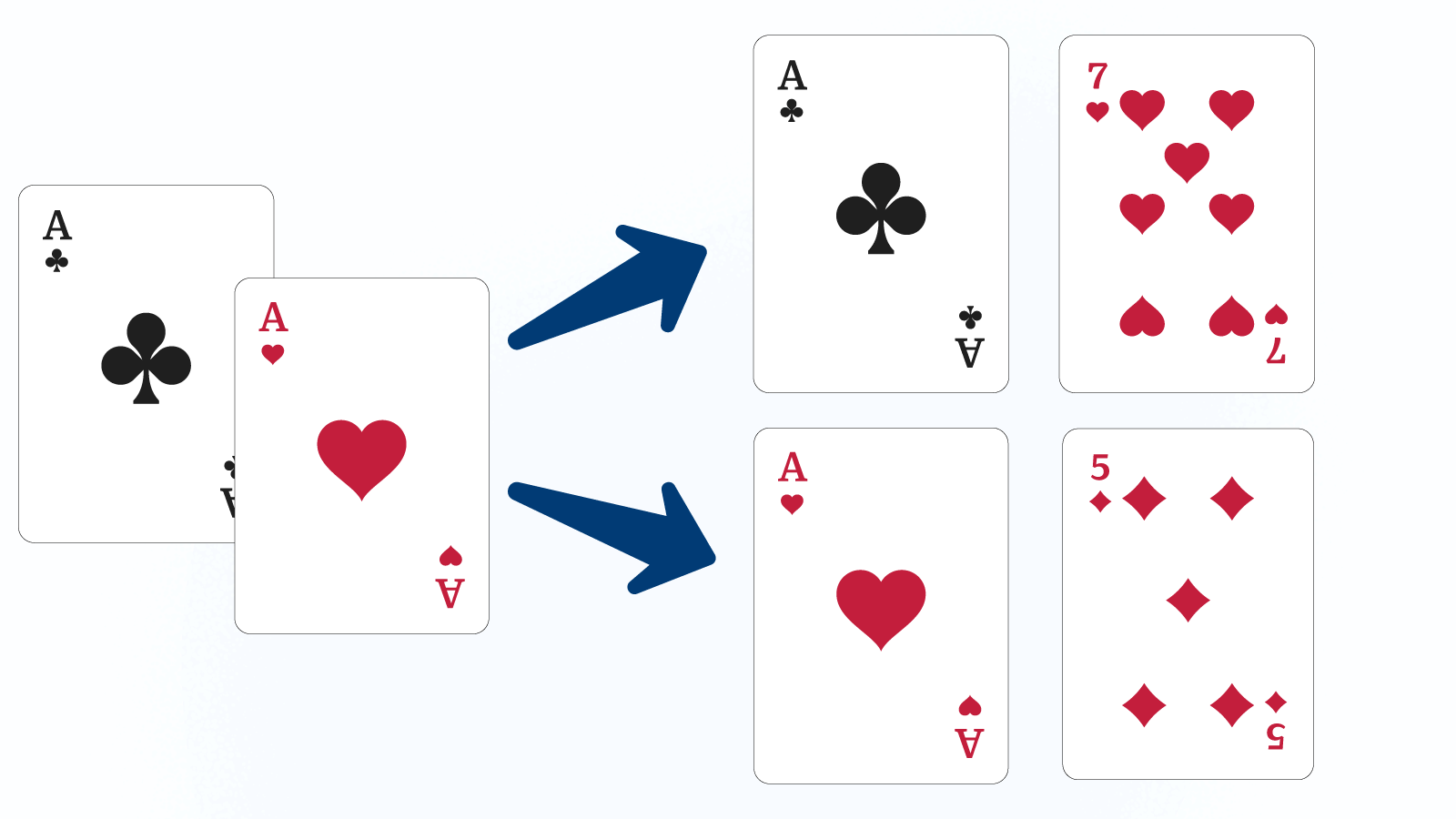
When a game of Blackjack starts, the dealer will give you two cards. If the cards are identical, you can split them into two hands. For example, if you receive two Aces, they can be split into two hands. Each hand would have one ace in this case.
Once you split the hands, the dealer gives you an additional card for each new hand. This creates two separate betting opportunities, which is why understanding proper bankroll management becomes crucial when splitting frequently.
Keep in mind that most Blackjack variants allow players to re-split the new hand to form a third hand.
Which Cards to Split and Which to Avoid
Now that you know what splitting means in Blackjack, it is time to help you understand when it is better to split and when it is advisable to keep the cards you have received in one hand.
Always Split These Cards
- Aces
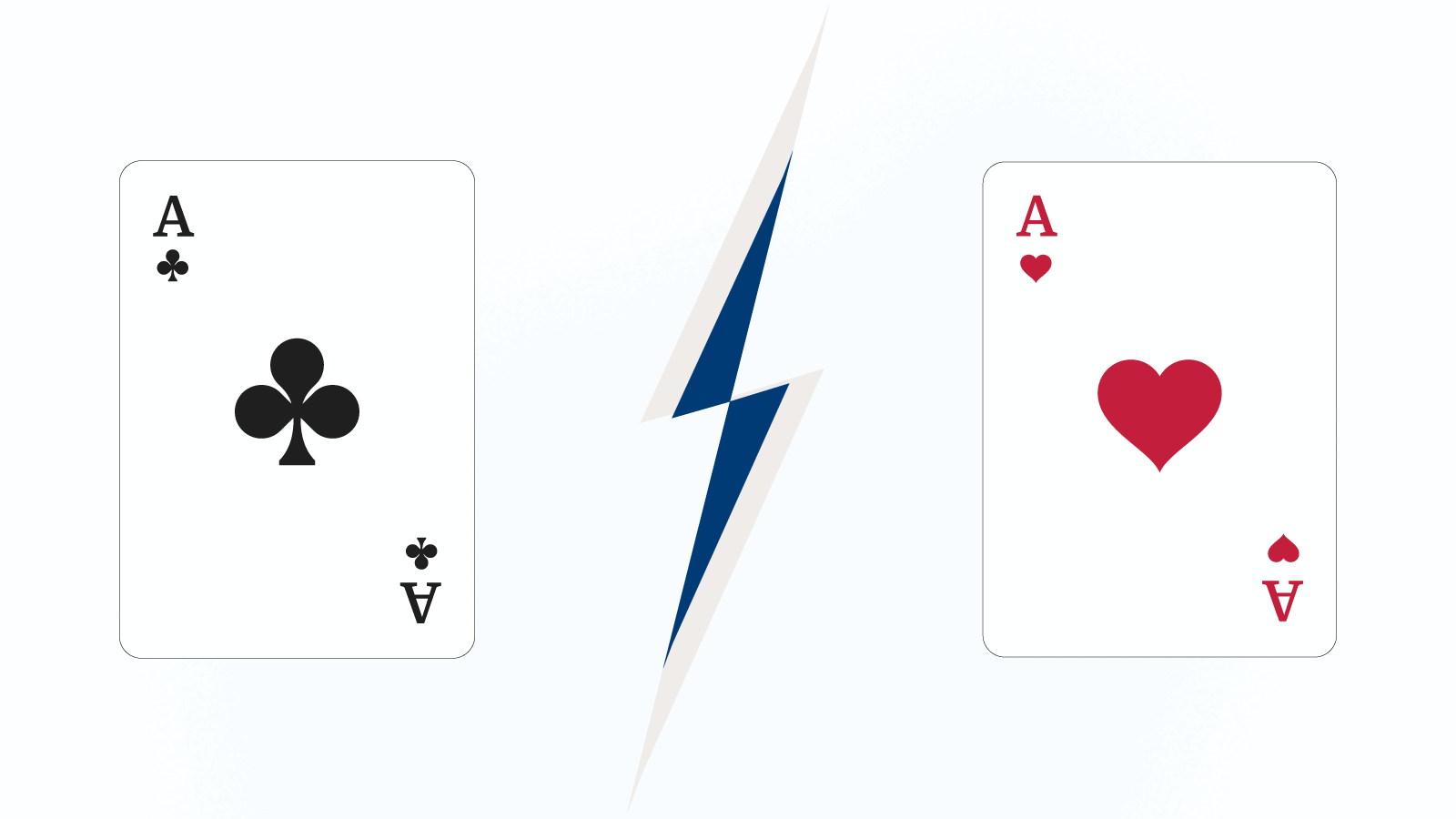
Aces can be problematic as starting cards because they have to be counted as either 1 or a soft 11.
Splitting aces gives you a chance to score 21 on at least one hand. This obvious benefit has actually made several establishments ban the splitting of aces as this would give the player a major advantage.
It is important to remember that splitting aces makes it impossible for you to score natural blackjacks. If you get a 10, you will simply win the game and will not receive the natural blackjack bonus.
- Eights
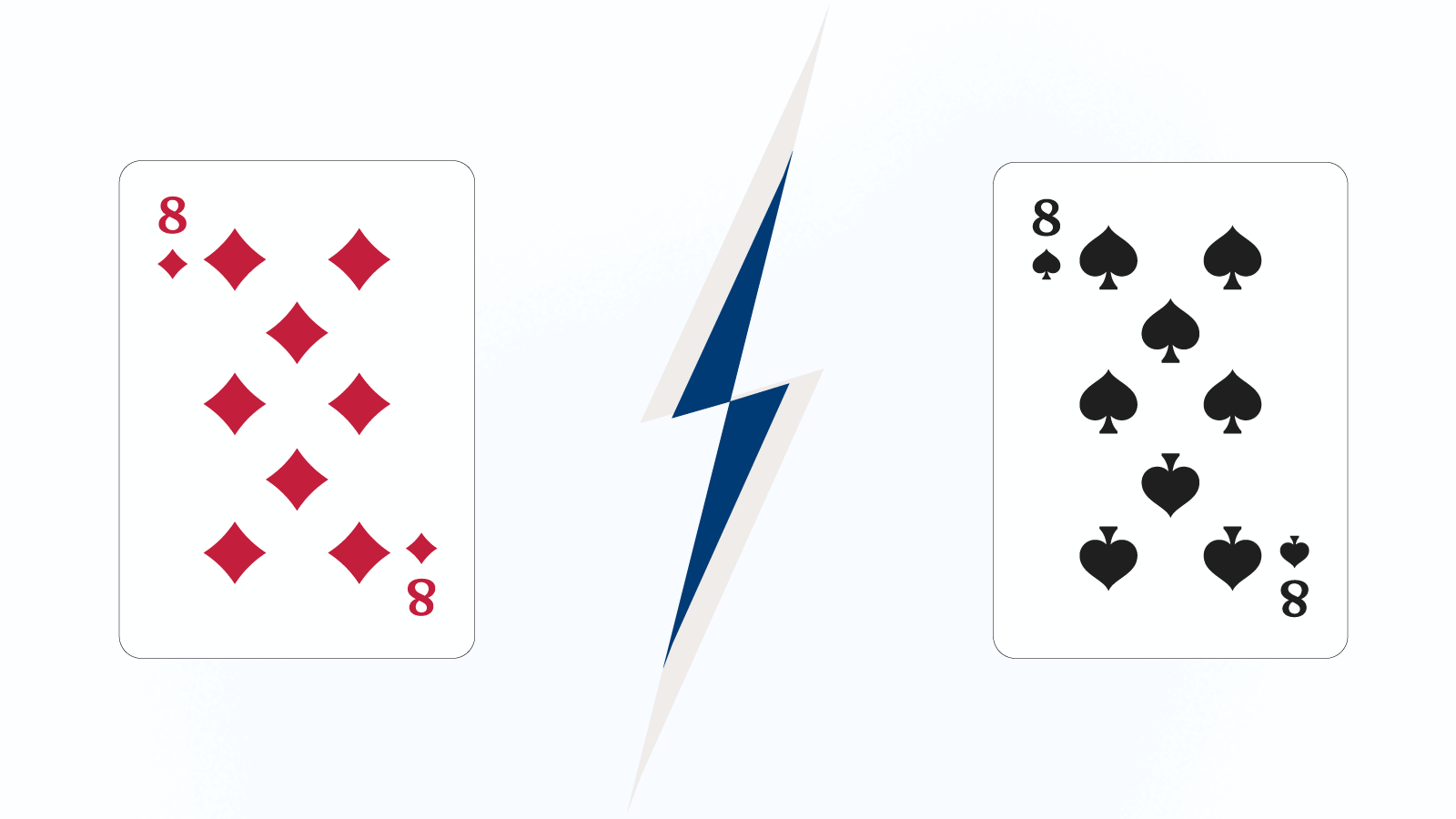
To understand why you should always split eights, you should first understand that you always have a very high chance of picking 10-valued cards. This is because 10s, Jacks, Queens, and Kings all count as 10.
Since you are most likely to pick a 10-valued card, your total is likely to go over 21. You will only be safe if you pick a card that has a worth of 5 or less, and this is highly unlikely.
If you pick two 8s, you will have a hand total of 16, and this is the most unlucky hand to hold in Blackjack. By splitting eights, you will have a good chance of making two hands worth 18 each, and these are likely to beat the dealer.
Many players wonder whether they should split their eights if the dealer has a nine or ten. While there are high chances of losing the game after splitting, the odds will still be higher if you decide not to do it.
Which Cards Should Never be Split in Blackjack?
- Fours
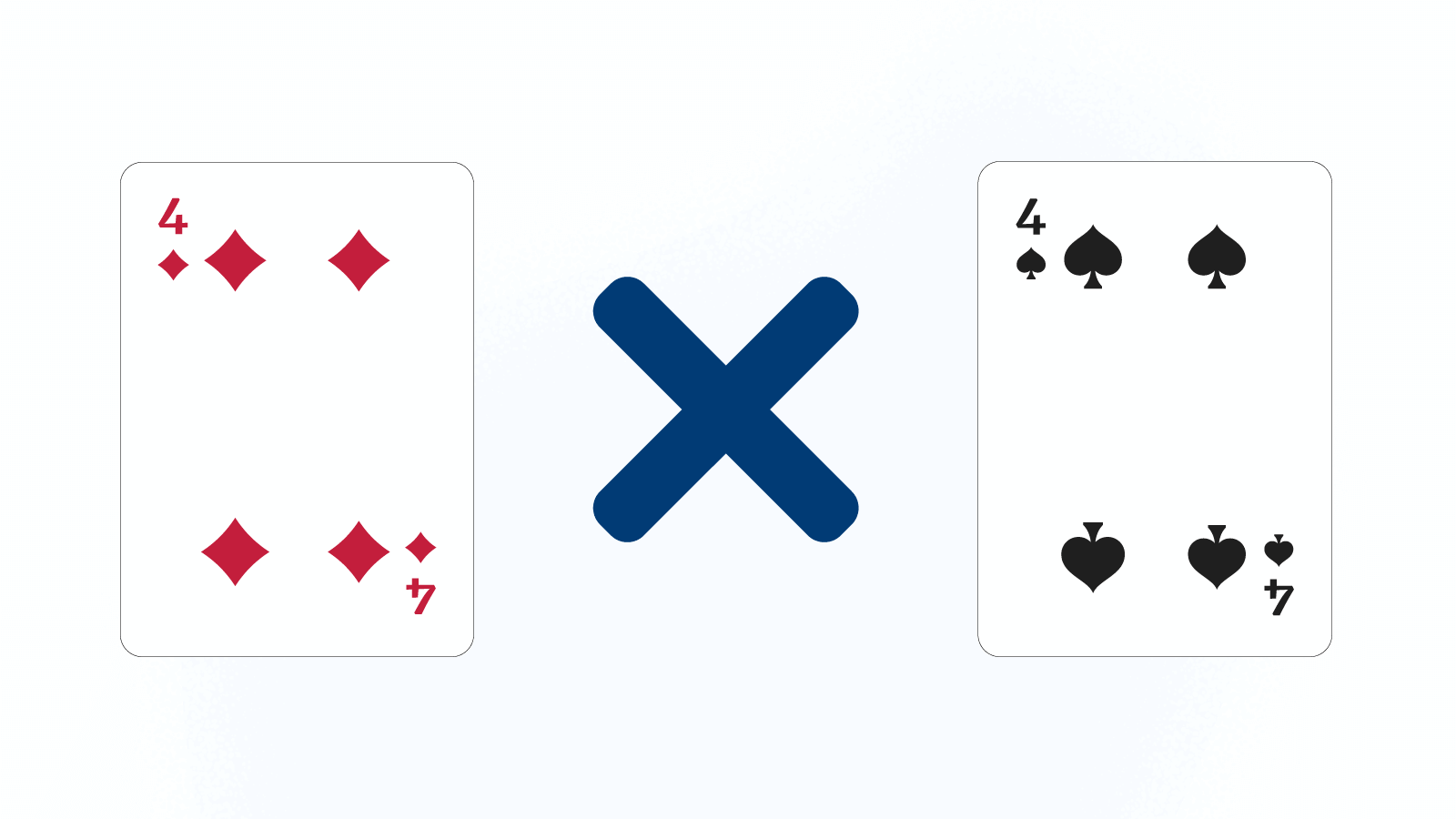
You should avoid splitting fours in Blackjack, especially if the dealer’s upcard is 2, 3, or from 7 to ace.
Instead of splitting, you should hi,t as you might have a better chance of winning. It is especially important to avoid splitting fours if the rules of the game don’t allow you to double down after pair splitting.
Remember that this rule holds regardless of the number of decks being used in the game.
While the basic splitting strategy covers most situations, some players wonder about other strategic moves, like surrender. Understanding when to fold your hand can be just as valuable as knowing when to split, especially in challenging situations.
- Fives
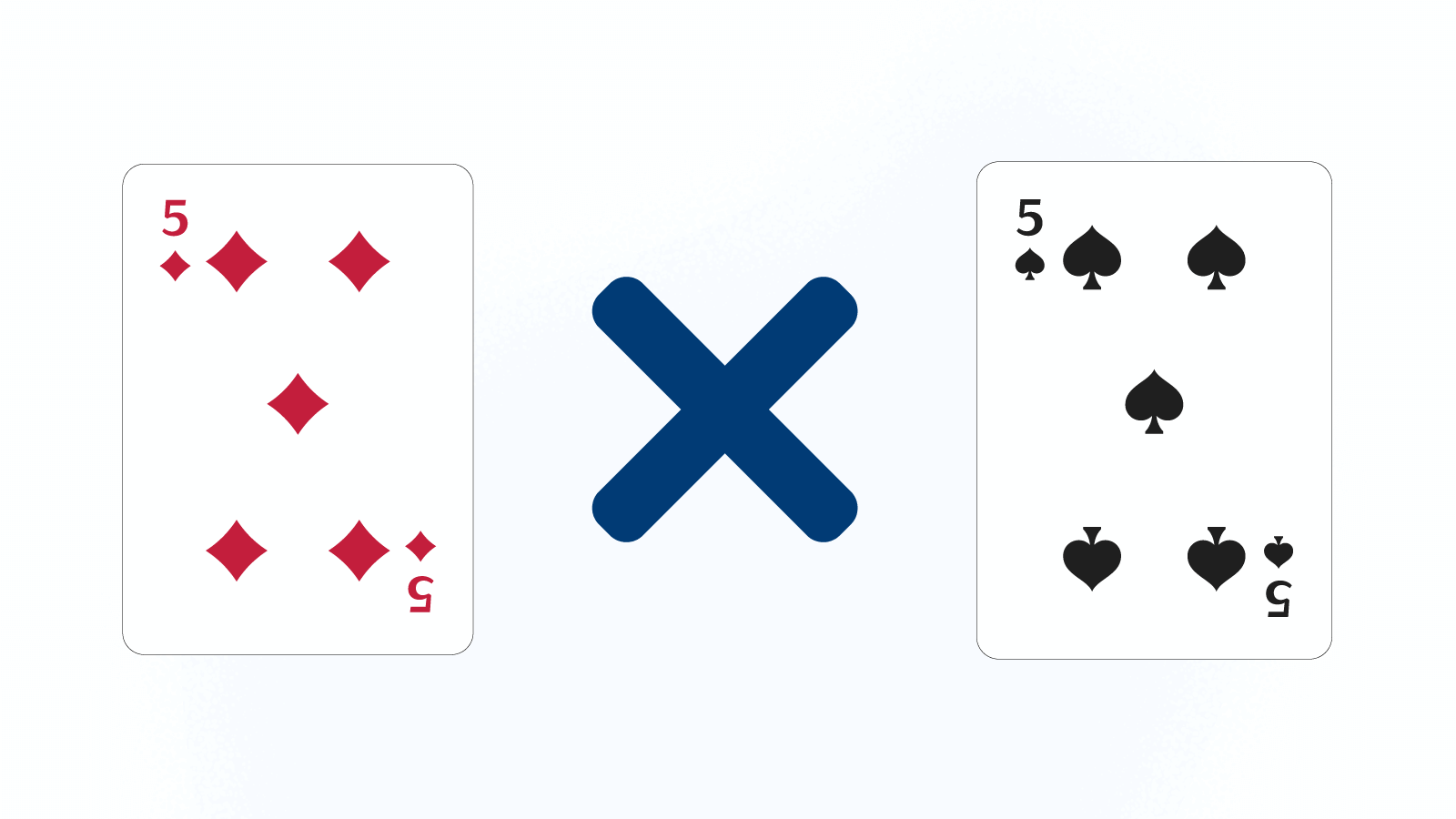
One of the absolute rules in Blackjack is that you should never split fives. Most experienced players don’t even consider this option since it is always better to start the game with a 10-value hand than two fives.
If you split fives and draw 2, 3, or 4, you will still have a very weak hand, and it is highly unlikely you will be able to beat the dealer.
You may also pick a six or higher, and this will almost always guarantee that you will bust in the next round. Therefore, risking a good hand would be a bad move.
- Tens
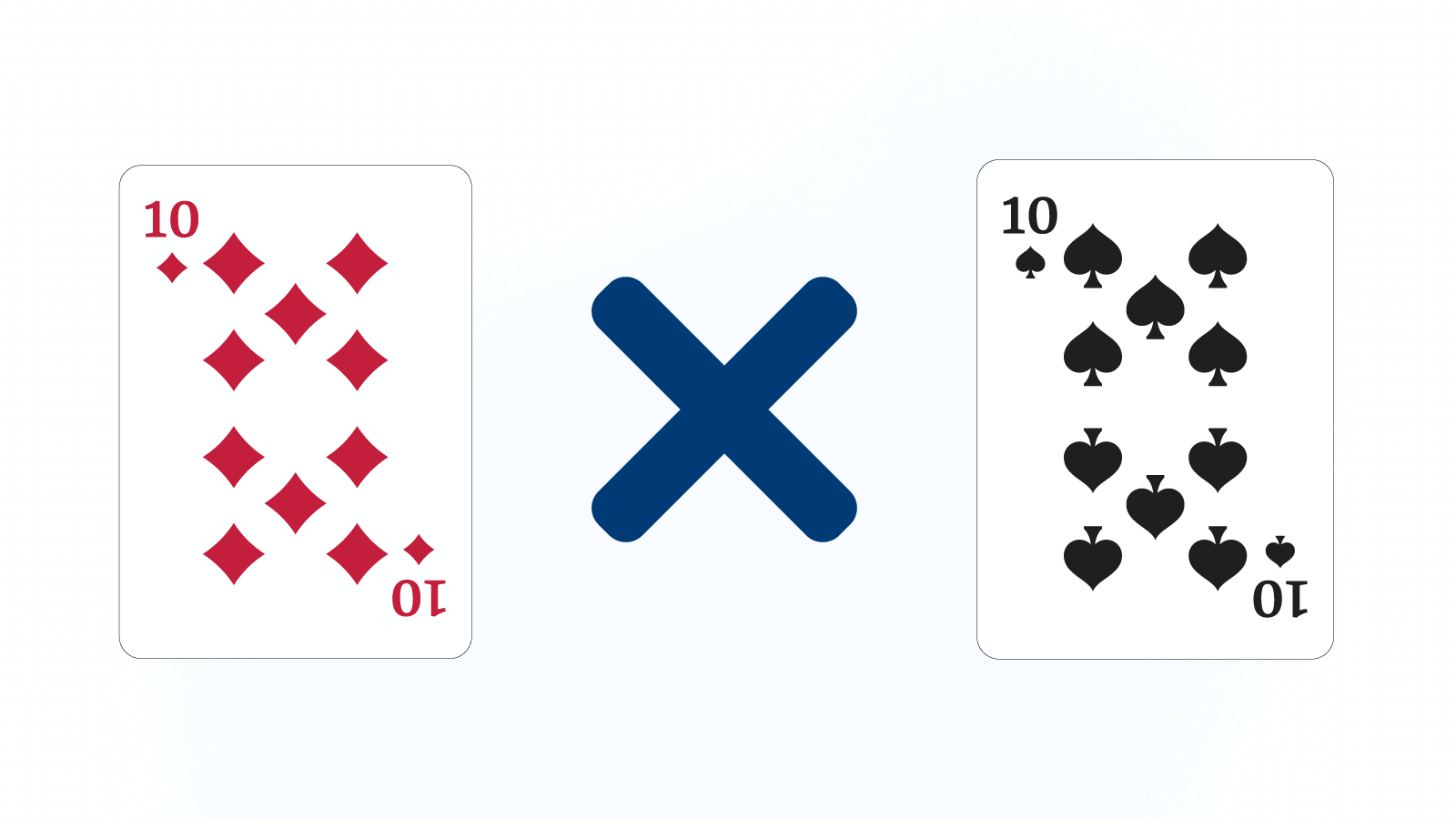
Starting with two tens can be great as your chances of winning will be extremely high. Splitting these hands lowers your earning chances and will also cost you money as you have to double your bet.
It is worth noting that splitting tens can still give you a good chance of winning if the dealer’s upcard is either 5 or 6. Still, mathematically, this isn’t worth the risk and the loss of money.
Essential Blackjack Splitting Rules
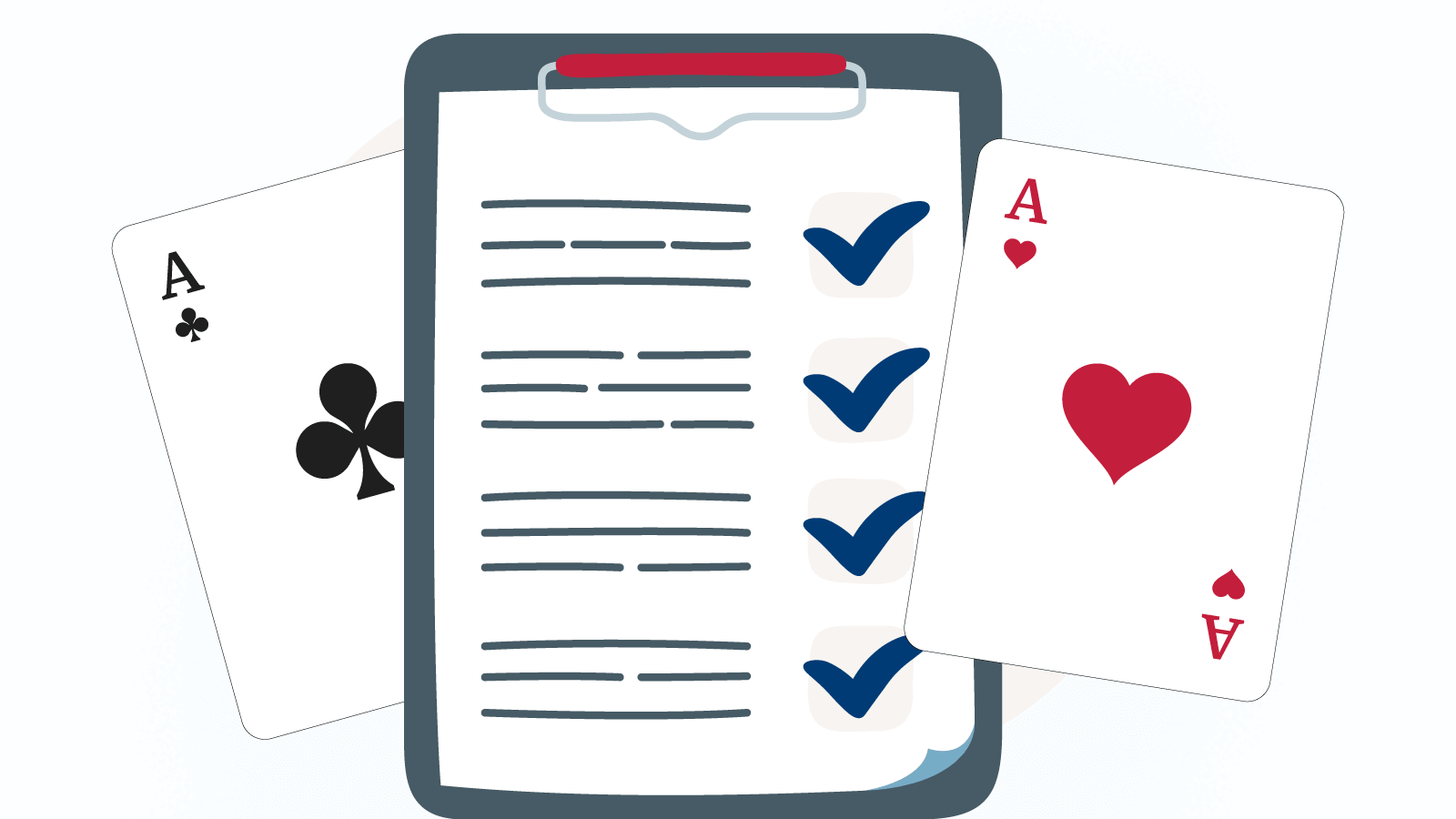
- Traditionally, any ten-valued cards could be split, but some variants of the game only allow players to split hands that have the same rank.
- After splitting your first hand, you may not be allowed to re-split.
- After splitting your first hand, you may not be allowed to double down.
- If you split aces and pick a ten, the hand may not be considered a natural blackjack and will not qualify for a bonus.
- When you split aces, you will not be allowed to hit more than once.
Advantages and Disadvantages of Splitting

Pros:
- Splitting gives you more flexibility in your Blackjack strategy that you can apply when playing Live Dealer bonuses.
- It allows you to handle unlucky hands better.
- It allows you to win larger sums of money since you have two hands.
Cons:
- With two aces, splitting eliminates your chances of getting a natural blackjack.
- You have to double your bet.
Pro Splitting Strategies and Tips
- Split sevens if the dealer’s upcard is seven or less.
- Split sixes if the dealer’s upcard is six or less.
- Never split fives, but double down if the dealer’s upcard is nine or less.
- Only split threes if the dealer’s upcard is between four and seven.
- Only split twos if the dealer’s upcard is between four and seven.
- If the game allows you to double down after splitting, you can split twos and threes if the dealer’s upcard is two or three.
Advanced splitting strategies often come into play during competitive blackjack tournaments, where the dynamics change significantly. Tournament play requires a different risk assessment compared to regular cash games, making splitting decisions even more crucial.
When to Split in Blackjack?
When playing in the best online casinos, you should always split if it is obvious that this can maximise your winning chances.
You can run some calculations to determine your Blackjack odds, and always remember to consider the strength of the dealer’s upcard.
How Splitting Improves Your Blackjack Game

Splitting in Blackjack is a powerful strategic move that you can apply to your gameplay, considering it could potentially contribute to your winning chances.
By applying the tips and tricks presented in our guide when playing with Blackjack casino promotions, you can make the most of the incentives received while enjoying your favourite game.
Splitting becomes even more effective when combined with other strategic moves like insurance. While insurance is generally not recommended, there are specific situations where it complements a splitting strategy, particularly with certain dealer upcards.
Make sure to always play responsibly. Gambling is supposed to be a leisure activity, not a means to make money.